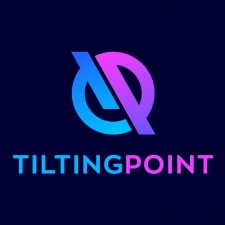If the cliche is that overnight business success takes a decade, the rise of mobile game publisher Tilting Point has happened at double-speed.
One reason for this particular pace was that when the company launched in 2013, it focused on premium mobile games; a sector that even then was being destroyed by the rise of free-to-play.
Indeed when current co-CEO Samir Agili joined the company as CPO from Gameloft in 2015, his entrance was coincidental with another contemporary dead-end; Tilting Point's first non-mobile game release.
It wasn't until 2016 that the company finally nailed itself down and defined its current business model, helping F2P mobile game developers optimise their games and businesses through deep operational integration.
"The two issues with traditional publishing is publishers are often taking a guess on the basis of a demo, while developers are always overly optimistic," Agili explains.
"That makes it hard to align both parties' businesses."
The solution for Tilting Point, as with other publishers, was to work with live games, analysing the data, and investing heavily in those games with the best potential to scale.
And in turn, that provided the inflexion point for Tilting Point's own upward trajectory.
"In recent years, we've 25-timed our revenues," says chief business officer Asi Burak.
"We have the model. Now it's time for us to scale it."
Although as Agili reiterates, Tilting Point's own success relies on the success of its development partners.
It's our goal to change the lives of our developers.Samir Agili
"It's our goal to change the lives of our developers," he says, harking back to the value created when publisher and developer businesses are aligned.
Expansive capital
This scaling dynamic is obvious in terms of how much Tilting Point has been investing in marketing.
Back in 2017, its UA fund was worth $12 million, while later that year, it spent $18 million promoting Nukebox Studios' Food Truck Chef. By mid-2018, the budget was up to $132 million annually across all titles.
This was reflected in the UA spend for individual titles too; $30 million in Mino's Cat Game in mid-2019 followed by $40 million on Joycity's Gunship Battle in late 2020.
Alongside the way Tilting Point has scaled up its business more directly by acquiring a bunch of its best-performing titles including Star Trek: Timelines and TerraGenesis.
"We're working with 40 titles now," says chief growth officer Jean-Sebastien Laverge.
"It enables us to scale our expertise much quicker than any single developer can, particularly when it comes to the network effects between organic growth, UA and monetisation."
He adds this was particularly the case when it comes to systemic changes such as Apple's recent privacy changes.
"The data we get is crucial in terms of understanding what's next," adds Agili.
"Our role is balancing that with the creativity we get from working with developers. We need to keep that creativity while also working at scale."
Ride the rocketship
And that's certainly the focus for Tilting Point in 2022 given its recent $235 million funding round, which surprisingly was its first major investment.
"The company was originally bootstrapped by its founders but now we have the fuel to really grow," says Agili.
Tilting Point signed 24 deals in 2021, including 10 co-developments, and expects that to grow in 2022.
We're very bullish about the future; our business is a rocketship.Samir Agili
Partly that means more deals, but it's also interesting to see Tilting Point's geographical growth.
It's been building up strong relationships in South Korea and hopes to do more in southeast Asia. It also recently opened an office in China.
Its deal with Carry1st to publish SpongeBob: Krusty Cook-Off throughout Africa was another pointer towards the company's global aspirations.
"We raised a lot of money because we want to do a lot more," ends Agili..
"We're very bullish about the future; our business is a rocketship, and that's going to change a lot of developers' lives."





















